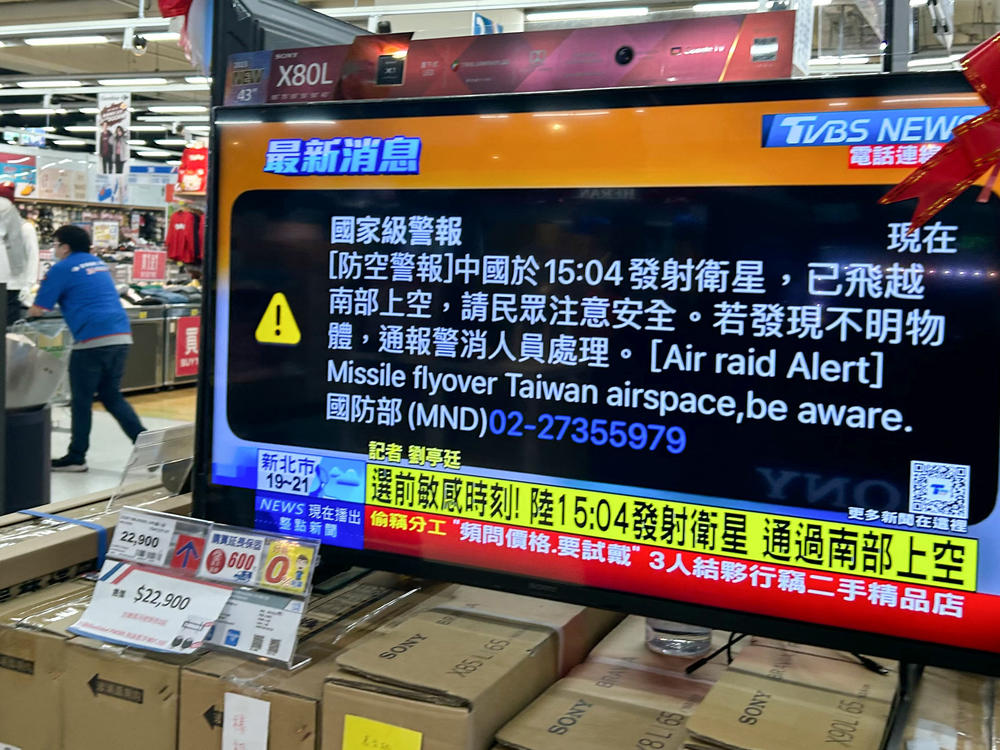Section Branding
Header Content
China launches a satellite over Taiwan, days before island's election
Primary Content
TAIPEI, Taiwan – China launched a satellite that passed over southern Taiwan on Tuesday, just days before consequential presidential and legislative elections on the self-ruling Asian island.
China routinely ramps up its intimidation toward Taiwan before any elections because Beijing claims it has control over the self-ruling Asian island.
Authorities in Taiwan sent out two mobile emergency alerts to residents in Taiwan, warning them a "missile" had flown overhead, before quickly clarifying China had launched a satellite and not a warhead.
The alert prompted criticism from politicians belonging to both major political parties in Taiwan, each accusing the other of using the launch to boost their presidential campaigns.
Carrefour, the French supermarket retailer which is popular in Taiwan, wrote a post on the company's Facebook page riffing off the mobile emergency alert, reminding customers to drink a cup of coffee and "wake up a bit."
China confirmed it launched a Long March 2 rocket, part of the Chinese military's main ballistic missile rocket family. The rocket was carrying an advanced satellite China calls the Edison probe."
This is the first time China has filed any kind of projectile that passed directly over Taiwan since August 2022, when then-House Speaker Nancy Pelosi visited Taipei, a visit that Beijing condemned.
Tuesday's satellite was launched from China's Xichang launch site in the southwestern province of Sichuan province. Taiwan's defense ministry says that rocket passed directly above the southern end of the island as it made its way towards outer space.
China has also continued flying a handful of fighter jets and weather balloons each day near Taiwan's airspace in the days leading up to Saturday's election in Taiwan.
Copyright 2024 NPR. To see more, visit https://www.npr.org.

